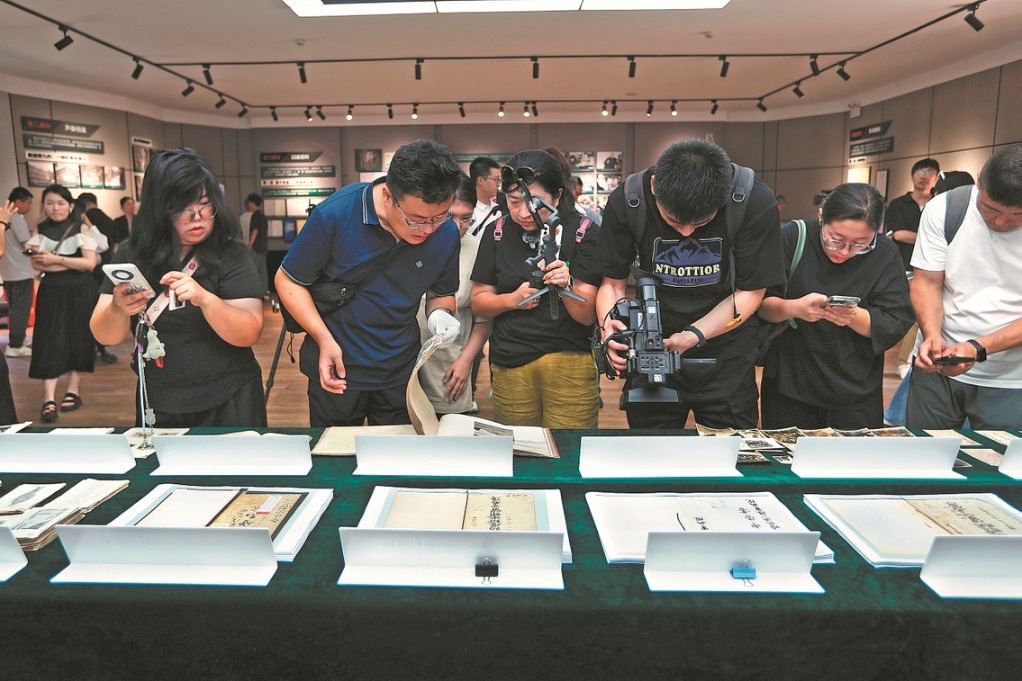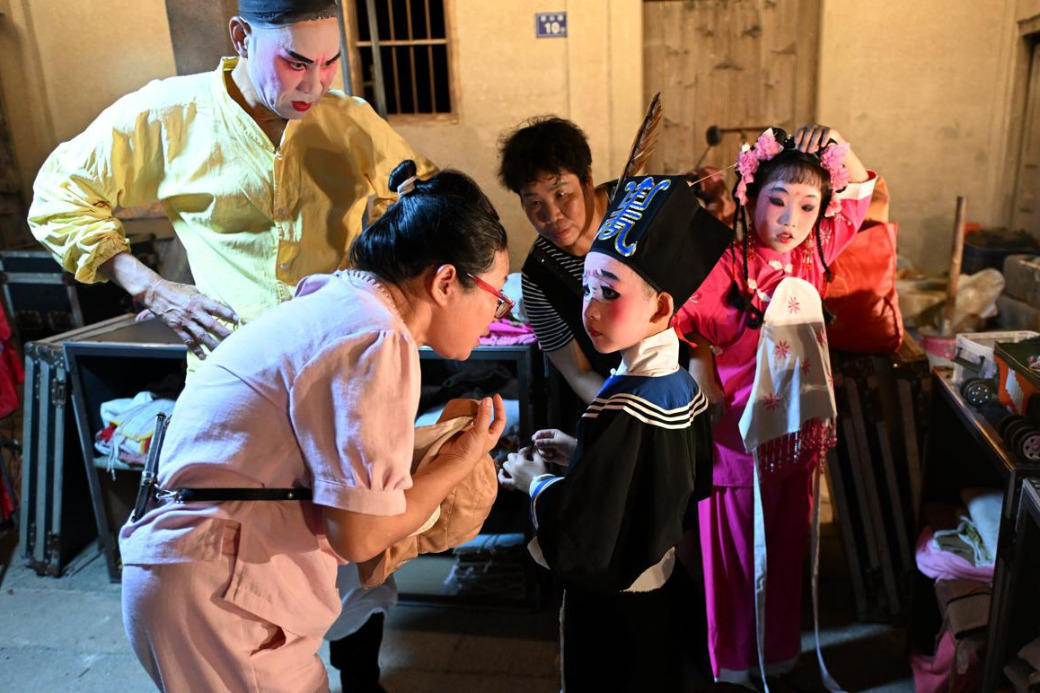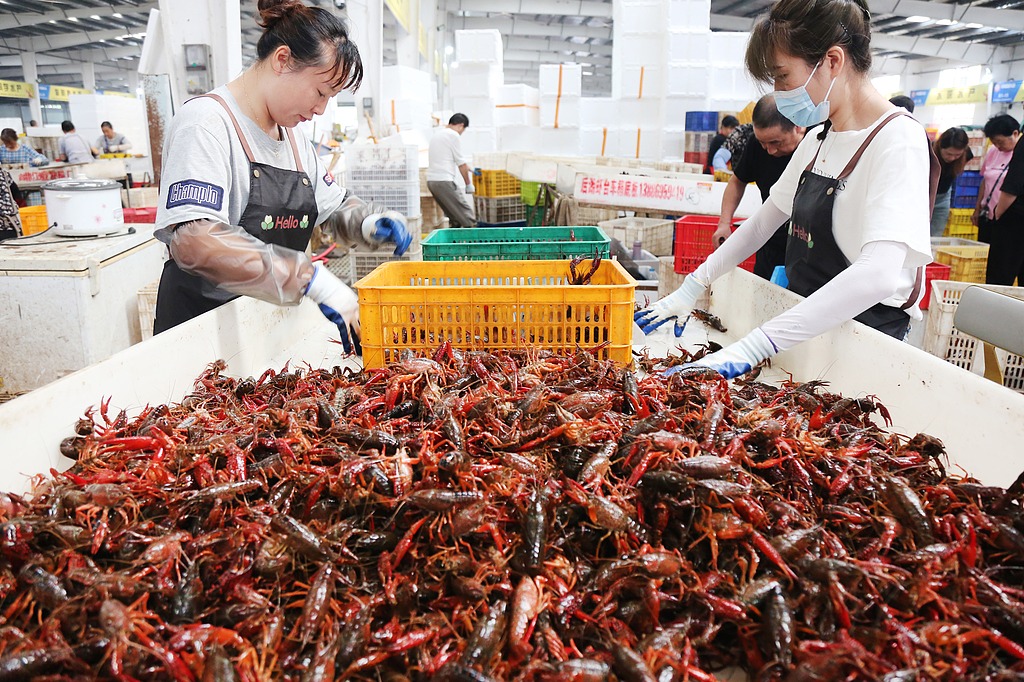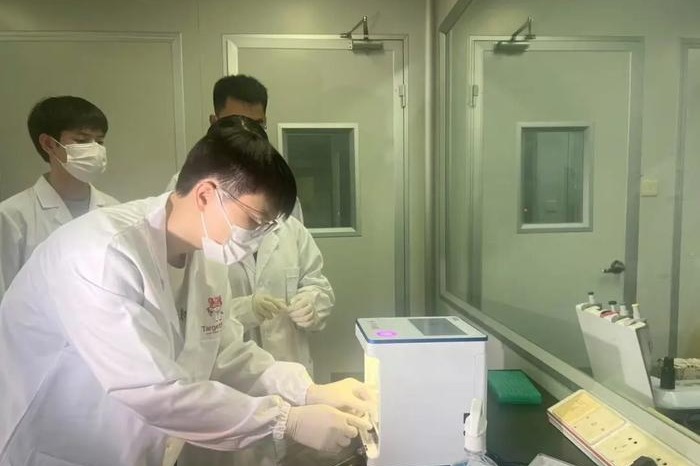Global AI leader pioneers latest practices
Shanghai emerges as the cradle of cutting-edge tech as imaginative policy pays off

Training a doctor normally takes years of grueling work at medical schools and hospitals. But "building" a "physician" powered by artificial intelligence could be as easy as teaching it how to read.
Zhao Liebin, vice-chairman of the Shanghai Children's Medical Center, is pioneering the use of AI to make children's wards smarter and smoother, by sharpening diagnostic skills to make the hospital experience less of a headache.
At the heart of Zhao's mega plan is to develop an intelligent identification system based on digital stethoscopes to classify physiological sound in children. Algorithms identify vital sign alerts and classify them as either real or artificial.
"Congenital heart disease remains the most common birth defect in China," said Zhao. "But its timely detection has been difficult for many county-level doctors, who lack proficient training in this area."
The AI project derived from the call for action on "AI Application Scenarios", an initiative in Shanghai since 2018 to proliferate the adoption of AI. Last year, the project won the "SAIL" award, which is affiliated to the World Artificial Intelligence Conference, an industry event that held its third iteration in July.
The WAIC is a flagship event representing the city's AI ambition, and is known for attracting Turing awardees, top-tier computer science experts and AI luminaries to discuss some of the most frontier issues around the technology and what it means for humankind.
More importantly, it is an epitome of Shanghai's bid to build itself into a budding AI highland.
"This is one of the highest-level events worldwide, with a complete range of industries and a gathering of high-end talent, which meets the basic elements required for the development of the artificial intelligence industry," said Xu Li, co-founder and CEO of SenseTime, an AI unicorn.
The company applies AI to everything, from healthcare and transportation to education and entertainment. It kicked off the construction of the "New Generation Supercomputing Center" in Shanghai in July, hoping to leverage the city's ambition of becoming a global science and technology innovation center.
The investment offers a sneak peek into how industries embrace Shanghai as the AI cradle. Although constrained by COVID-19, some 37 key AI companies tracked by the Shanghai Commission of Commerce saw their firsthalf revenue surge 31.6 percent year-on-year.
CloudMinds, an intelligent robot maker, also doubled down in Shanghai, breaking ground for its industrial base at the end of March.
"We see Shanghai as a fertile land for AI, because it boasts high-end manufacturing prowess, attracts top-tier talent from home and abroad, and lures capital critical to the industry," said Wang Bing, chairman of CloudMinds.
Three cornerstone policy directives between 2017 and 2018 laid the foundation for Shanghai's AI takeoff. The city pledged it will ensure its key AI industries exceed 100 billion yuan ($14.5 billion) in sales revenue by the end of this year. It also identified autonomous driving, intelligent robots, intelligent hardware and software, and smart chips as building blocks of its AI-based industry.
In addition, 22 measures were later proposed in a bid to attract highend talent, breaking through technologies, promoting demonstration applications and fostering local partnerships.
It is the combination of these factors that propelled global tech giant IBM to locate its first IBM Watson Build AI Innovation Center in Shanghai, according to Chen Liming, chairman of Greater China region operations of IBM.
"In collaboration with local company Zhangjiang Group, this open collaboration innovation model of AI is IBM's first such attempt in the country. It also shows our determination to further take root in Pudong (New Area) and better serve Shanghai."
A dedicated AI lab was unveiled at the third WAIC that witnessed a series of project signings and industrial platform debuts in the city.
Mayor Gong Zheng unveiled the Shanghai AI Laboratory at a ceremony where investment deals totaling more than 30 billion yuan were signed. These included eight AI investment fund projects in Shanghai and 36 industrial projects from leading tech companies such as Baidu and Huawei.
Many top-notch executives, including Tesla Inc CEO Elon Musk, see Shanghai as a test bed for conducting bespoke innovation instead of a more universal solution applied across all markets.
"I am always amazed by how many smart and hardworking people that are in China and how much positive energy there is, and there people are really excited about the future," Musk told the gathering at the opening ceremony of the WAIC 2020 on July 9 via a video conference. More AI and its applications will be adopted across the Tesla plant to make it smarter, he said.
Musk also reiterated that Tesla will do unique design and engineering tasks in China, rather than simply converting projects created in the United States. This is based on the fact that Tesla has sold a record high 11,095 made-in-Shanghai Model 3 electric sedans in China so far.
One priority for Shanghai is the application of AI in the real economy. To this end, the city formed an AI industrial alliance last year dedicated to "resources matchmaking "as it gears up to become a global leader in pioneering the latest AI practices.
The 22-member bloc summons leading AI enterprises from both domestic internet giants including Alibaba, Tencent and Baidu, and international powerhouses from the Microsoft Asia Research Center (Shanghai) to ABB, a Swiss industrial conglomerate specializing in robotics and automation technology.
"We are looking at more complex situations, more comprehensive solutions and more pressing scenarios in need of automation and intelligence," said Zhang Ying, deputy director of the Shanghai Economic and Information Commission.
According to Zhang, such incentives have encouraged many industrial enterprises to embrace the AI trend. For instance, Shanghai-based carmaker SAIC has developed a "logistics brain" to realize efficient operation of large-scale logistics supply chain, while Baosteel has built remote intelligent operation and maintenance platforms for equipment to realize remote control and monitoring.
Banking on its status as the financial center, Shanghai is even willing to spend heavily to help AI enterprises. The Shanghai AI Industry Investment Fund, set up last year with an initial corpus of 10 billion yuan, is expected to form a new fund whose scale could be 100 billion yuan upward.
At the same time, Shanghai constantly helps enterprises expand financing channels. Innovative enterprises like Ucloud and Montage Technology have successfully landed on the Shanghai Stock Exchange's so-called Sci-Tech Innovation Board, with a list of high-potential enterprises pressing ahead with their initial public offering plans.
Talent remains a key to the emerging segment. As a core pillar attracting top-notch AI personnel, Shanghai has also announced an AI plan recruiting leading researchers under the age of 30.
The "Class A Project" was proposed by founders and scientists of 20 AI startup companies, with an aim of fostering the next generation of local AI talent through collaboration among industry and academia, financial services and other initiatives.
The first batch of 15 candidates comes from over 10 universities such as the University of California Berkeley, Carnegie Mellon University, Stanford University, and China's Peking University, Tsinghua University and Shanghai Jiao Tong University.
Shanghai should draw experience from Silicon Valley, where technology, talent and career have formed a closed loop for AI development, said Zhu Mingjie, CEO of CraiditX Technology, and executive director of the Shanghai AI Young Scientists Alliance.
"It is very dangerous if an enterprise operates purely as a lab that lacks effective exposure to the market," Zhu said.
"Technology should look for clients, occupy the market and generate productivity. Key to productivity is talent, who need proper guidance and talent scouts."
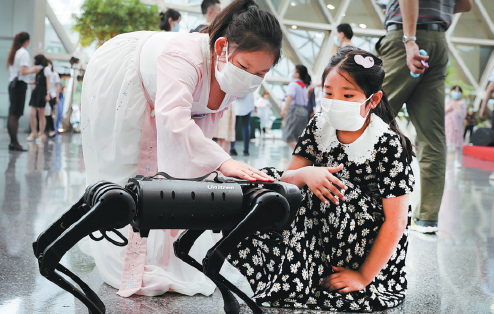
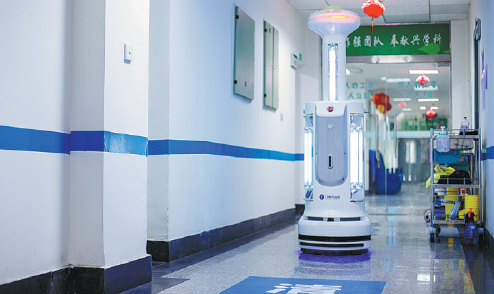
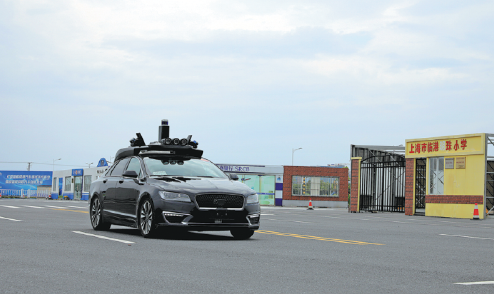
Today's Top News
- Books of Xi's discourses on adhering to deepening reform comprehensively published
- China holds 2nd rehearsal for event marking 80th anniversary of victory over Japanese aggression, fascism
- Foreign athletes embrace culture, innovation at Chengdu World Games
- Meet again? Putin says: Next time in Moscow
- Zelensky to meet Trump in Washington on Monday
- Wang Yi to visit India from Monday
















